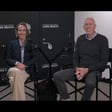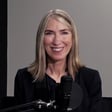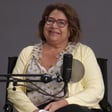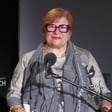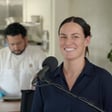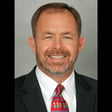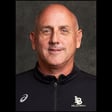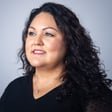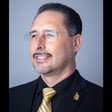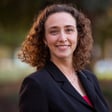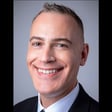Become a Creator today!Start creating today - Share your story with the world!
Start for free
00:00:00
00:00:01

Legally speaking
CSULB's Dr. James M. Binnall discusses teaching criminal law, criminology, law, and reforms -- often from a place of personal experience.
Transcript
Introduction to the Podcast and Guest
00:00:16
Speaker
Hello, I'm Dan Montoya, Vice President of University Relations and Development. Welcome to another episode of At the Beach. This podcast shares news of accomplishments, personal stories, and ways listeners can be involved with Cal State Long Beach, and is produced by URD. Today, I'm delighted to introduce my guest, Dr. James M. Bonnell. James is a professor of law, criminology, and criminal justice here at the Beach, where he serves as Executive Director of Project Rebound,
00:00:45
Speaker
which we'll get to in a bit, and he's a research fellow at the Institute of End Mass Incarceration.
James Bonnell's Journey from Incarceration to Academia
00:00:52
Speaker
More than that, James has a story to tell, a story of tragedy, grief, reflection, reconciliation, redemption, and service. Welcome, James. Thank you. Glad to be here. First, let's get the listeners a little bit more about your background on your education and professional experience. Dr. Bernal,
00:01:13
Speaker
Has a PhD in Criminology, Law, and Society from UC Irvine. an LLM or Masters of Law in Constitutional Criminal Law from Georgetown University Law Center, and a law degree from Thomas Jefferson School of Law, a Masters in Social Ecology from UC Irvine, and a Masters in Education from Wagner College. James' research focuses on civic marginalization of those with criminal convictions, parole and post-release restrictions, and conditions of confinement. His primary research, which is focused on the exclusion of individuals
00:01:46
Speaker
with a felony conviction from the jury process has made him the nation's preeminent expert on the subject. James, that's a remarkable list of accomplishments that you have. But you didn't become this legal scholar through the typical process in academia. And it's fair to say that instead of a usual journey for most professors that take in the academic space, yours is very unique. We'd like for you to share it with listeners today.
00:02:12
Speaker
Sure, and thank you for that question. So to start, I am not a California native. I grew up in Boston, Massachusetts. And I was a high school wrestler, high school baseball player, grew up you know understanding from my parents that education was very important.
00:02:30
Speaker
But I must say I got the message, I think only halfway, right? Sports was more what I was into as a kid. I left high school. I went off to Pennsylvania and I wrestled at Gettysburg College. I played baseball there as well. And I spent four years in southern Pennsylvania doing that.
00:02:48
Speaker
When I graduated um with my business degree, I was not sure what I was going to do. I had this design on being a corporate recruiter for Fortune 250 companies, um you know going to college campuses and sort of keeping the party going, etc.
00:03:04
Speaker
And ah late in the summer, after I graduated, a job opened at Wagner College. And I was named the head wrestling coach there. It was a two year position. And I was ecstatic over the moon. I was 23, youngest head coach in the country, division one, that is. And I got to move to New York City and start a life you know that any young adult might want to start. So I went to Wagner and I spent a year there and did well. you know Our team did well. We recruited well. We won a few matches.
00:03:34
Speaker
And at the end of that first year, I finished my final exams, because I was also a graduate student there. i I got a call from a friend of mine who asked me to come down to Pennsylvania, meet up, and spend the night out. And we did that. Went to a bar,
Consequences and Transformation in Prison
00:03:49
Speaker
had too many drinks, was intoxicated, left with this friend, got out to our cars, which were parked next to each other, and we flipped a coin.
00:03:57
Speaker
He won, so I had to drive home. Got in my truck, and about a mile down the road, we crossed the yellow, and we hit a truck head-on. And he got killed instantly, and I was hurt pretty bad.
00:04:10
Speaker
I was airlifted off the highway, informed about my friend, and ultimately spent the next six months in the hospital or various hospitals. um As soon as I was released from the last hospital I was in, I was charged with a DUI homicide and a DUI aggravated assault for the gentleman in the truck that we hit. It was a Mac truck.
00:04:32
Speaker
Ultimately, I spent that year on bail. I went tried to go back to work. ah The news of my rec had gotten out, had a meeting with my athletic director ah soon in my second year, and he asked me to resign. But they graciously let me stay a student and you know stay in the coaching housing.
00:04:50
Speaker
At the end of that year, I took my last final on a Friday afternoon, and the following Tuesday I got sentenced. and I was sentenced to three and a half to seven years in state prison. I went that day and started my started my time. The first place that I was sent was Greataford, which is Department of Corrections Greataford. It's right outside of Philadelphia. It's the topic of a pretty famous book in law and criminology called Life Without Parole by Victor Haseem.
00:05:19
Speaker
And then eventually was transferred to another prison and you know happy to go into kind of where I went from there. But I began my law degree behind bars, actually. Yeah, I appreciate that story because it's it's probably not a lot of ah good memories. And um but it also it also is a really story about choices and and how, you know, sometimes what you think is, is a fair choice turns out to be something random and life happens, right? I mean, who would have known, right? It could have gone, you could have lost the coin toss and been in a whole nother direction, but I really believe, you know, a lot of things happen
00:06:00
Speaker
for a reason, right? And it's obviously your journey has formed you into who you are. So, you know, when you share your story with students or colleagues or the public, what what is the typical reaction? So I share my story of the first day of class for every class that I teach and um we do a stereotyping exercise and it is you what do folks with felony convictions look like demographically and we go through the different characteristics and then I say well but what kind of people are they? you know Can you trust folks with felony convictions? Would you let your mom, daughter, uncle date someone with a felony conviction? Would you have dinner with someone? Would you hire them to work on your house? And the responses I get typically are absolutely not, right? You see the sort of stereotypes coming out. Then I revealed that in fact I am someone with a serious criminal conviction, a felony conviction that spent a little over four years and in two state prisons.
00:06:56
Speaker
Then I asked my students, so what do you think that I did? What what do you think that was my conviction for? And the answer is very. Typically, it's some white-collar crime because I'm in a suit teaching class. right ah And you know they're they're sort of astonished, I think, to have a professor with this kind of background. But honestly, I think very appreciative. um It often sparks a very robust discussion on the first day of class.
00:07:18
Speaker
And I will say that over the years that I've been here, I'm in my 10th season now teaching at Cal State Long Beach. um I've had dozens of students identify as formerly incarcerated or having someone in their family who spent a significant time amount of time incarcerated as the
Reintegration and the Role of Education
00:07:34
Speaker
result of this conversation. So the goal always is to break down barriers and to develop a level of mutual trust among my students because the things that we talk about right in criminal law and courts are sometimes triggering or sometimes difficult to talk about. And I find that sharing with students, even though you know it does take a little piece of me right every time I share that story, um I gladly do it because I feel like because of what I did, um you know I need to be in service of others going forward. And and that's just one part of it.
00:08:08
Speaker
Yeah, and i I appreciate that in service to others because, you know, I think, you know, again, you know, prison reform and all this whole nother conversation. You could probably be on that for a long time. I think you're right though. you know I think somebody in their family or most people in their family know someone are are or someone related to someone who has had that kind of misfortune in and the criminal system right or in in the judicial system. you know i I can personally attest to that, you know you know having relatives, you know
00:08:42
Speaker
um experience that and it it was very unfortunate you know very very similar to what you're explaining and I think a lot of people don't understand that these are are good people that were in the wrong place at the wrong time or circumstances so moving moving on to your future journey right once you you did your time and and served your ah service to to the penitentiary and and you know, you pay your dues. Talk to us about after that, you know, how how did you navigate the journey after that? Because I think sometimes people don't understand what it's like um when you get out, right? And how you have to assimilate into a whole and another lifestyle. It's it's like leaving one world and going into another. And I think
00:09:37
Speaker
um That's kind of what project rebound is a little bit about. And so before we jump into that, I just want to get your perspective on that because I really want people to understand, you know, how hard it is to jump it back into civilian and, you know, society with, as a mark, you know, with a mark on you and, and, and people are not as forgiving as you would think.
00:10:01
Speaker
Yeah, so I think, to answer that, ah I'll go back a little bit. I went in in 2000, and I was inside for 2001, for 9-11, which was life changing for a lot of people, and I had just been living in New York City. So, especially, I paid a special attention, right, when it when it happened, and and there you know there was a plane crash in Pennsylvania, so obviously they locked everyone down.
00:10:23
Speaker
About a year later, um I got a job done at the school and I was teaching GED classes to people who were mandated to try to get their GED as part of parole. Lots of these kids were 22, 23 double life sentences.
00:10:39
Speaker
And so here I am trying to motivate them to learn English and math um in the hopes that one day they might see the street. I learned a lot about classroom management in that first gig that I had inside, um but it was probably the most rewarding teaching position I've ever held if I'm being honest.
00:10:57
Speaker
But i I found myself feeling a little hypocritical because i'm I'm standing up there sort of beating my chest about if you ever want a chance, you have to do this GED, try to get a better education. But here I was sort of just sitting on what I had. So I petitioned the vocational guidance director there ah to take my LSAT, my law school admissions test, while I was inside.
00:11:19
Speaker
I had always talked about going to law school with my dad. um He's passed now, but those conversations were typically him saying I should and me trying to avoid the conversation right because I wasn't a big school guy back then, which I imagine that. And so anyway, I petitioned. I got permission. And on October of 01, a month after 9-11, I took my LSATs inside and so scored out well.
00:11:41
Speaker
Ultimately applied to 11 law schools got into 10 from inside wow But only one would allow me to start while I was on active state supervision so I saw parole right before I got out and Or right, you know on time and they gave me a parole hit because I had a death in my case It was the standard procedure in Pennsylvania at the time Governor Ridge who became the Homeland Security director? That was his policy, right? So I got my hit didn't know what I was gonna do but I was steadfast that I was gonna do this law thing when I got out and Ultimately, I got re-reviewed at six months. Governor Rendell came in and let let folks get re-reviewed, and I got out in 04. I immediately paroled to Boston, spent six months there, and then did an interstate compact out to California where I started law school. I was in a criminal law class six months after walking out of the gate at Camp Hill, which is where I finished my bit at Thomas Jefferson School of Law, which, you know, i have to I can't say enough about them. They're a California credit law school now. When I went there, they were ABA-accredited.
00:12:40
Speaker
um They worked with me through the mail when I was inside to help me apply and help me get set up when I got San Diego. So again, can't say enough. Went there, finished my law degree, and then spent you know a number of years kind of traversing the country. I went to Georgetown and then came back and did my PhD at UCI. i But through all that time, to your point,
00:13:00
Speaker
um You know, as I said, I'm sitting in a criminal law class and hearing about those people and hearing about ah criminals and hearing about, you know, offenders. And I don't have a license. Didn't barely have two pennies to scratch together. Was living in a little one bedroom apartment, walking to school in a brand new city all by myself on parole. And um It was hard. and you know Who do I tell in my class? Who do I trust? um Ultimately, it was nobody. I didn't share it with anyone except a single professor. and you know it was It was difficult. um It got a little easier as time wore on, but I will say going to school when I first got home um saved me.
00:13:45
Speaker
I needed that sort of time out from the speed of the world to be in class to have a routine. Um, and so to your point, I know we'll get to rebound later. Um, but project rebound, I think is that for a lot of the students that we have here at Cal State Long Beach and across the state of California, it's that respite, um, because the world moves real fast when you hit the street and it can be really overwhelming.
Project Rebound: Mission and Impact
00:14:09
Speaker
Um, first trip to a grocery store is, is eyeopening after being away for five years.
00:14:14
Speaker
I can imagine even even the simplest of items that we take for granted, like a candy bar or soda, right? Or, or a hot dog, right? It's probably something that tastes amazing. You know, after, ah you know, being in in yeah penitentiary or having to deal with a lot of those, you know, amenities that you don't get on the outside.
00:14:41
Speaker
Yeah, it was great. My first meal out was a pizza. I'll never forget that. My parents picked me up at the train station. It was a great night. But I started immediately doing things to give back because I felt like that was a duty of mine.
00:14:57
Speaker
And so immediately I started going all to you know a number of high schools and talking about drinking and driving. And essentially the title of my talk was, It Could Never Happen to Me. And I stood up there and talked to kids that were in very much the same position I was when I was in high school.
00:15:12
Speaker
I sort of told them, you know, I know you hear me, but the question is, are you going to listen? um I sat there and I believed it would never happen to me. And now I'm standing up here and I'm telling you the same thing I heard. And to this day, I get emails from folks that I spoke to 15 years ago who now have kids that are ah going off to college or or kids that are young adults that are just getting their license and saying that, you know, they pull my talks and show their kids. So, yeah, it's it's been It's been impactful in a lot of ways, and it keeps me grounded in remembering kind of what happened, and so that um I keep myself kind of on the straight and narrow, and I never forget where I came from. The longer you're out, you know the easier it is to kind of forget, walk in the block, and and that feeling of being alone and being away from your family, it dissipates. But working with folks who are fresh out, it reminds me of that, and it keeps me grounded. And it's so it's ah it's a win-win, I think, the work that I do.
00:16:08
Speaker
That's awesome. So now let's jump into Project Rebound. Maybe you can tell us a little bit about you know how long it's been around, um you know what programs exist within it, how it's how it's structured here at Cal State Long Beach, and what are your goals um for this year and in in the near future?
00:16:28
Speaker
Yeah, so Project Rebound started in 1967 at San Francisco State University. It was started by a guy named John Irwin, who was a formerly incarcerated sociologist, criminologist. He ended up a professor there. John was a fantastic guy. He started a group called the combat criminologists.
00:16:46
Speaker
um And it was at San Francisco State really working out of a broom closet for years. His goal, his mission, was to attract people who had been incarcerated to San Francisco State because he believed that an education could be a transformative ah piece of reentry, right? That if you went to school, that it would facilitate successful reentry. And that was the mission of Rebound.
00:17:06
Speaker
and it was at San Francisco State only until 2016 when it expanded to eight other campuses. In 2020 it expanded again to another five um and that was when Project Rebound came to Cal State Long Beach when we applied and were awarded a chapter of the program. We started with 12 students and we now currently have 110 and really our mission the way it works is We go out into the community to prisons, to reentry centers, to halfway houses, to drug and alcohol treatment centers. And we talk to folks that are formerly incarcerated, and we ask them if they're interested in continuing or starting their education and what we can do to help. And if they're before community college, we try to place them in a community college and get them poised for transfer. If they're ready, we work with them to come right to Long Beach.
00:18:02
Speaker
And really, our goal is just to get them in school. um I am a bit of a used car salesman when we get folks on campus that are wondering about school. Should they do it? As long as we get them here um and get them in this pro-social environment, um I feel confident that they'll succeed. And thus far, um the success of our program has been has been a testament to that. We graduated the most folks in the state of all the rebound. now So let me back up. currently um ah We have what, 21 CSUs or 23? On 21 campuses, we have a rebound. wow And so we're now on all the campuses that want it. You know, two don't. So we're on the 21 that want it. We had the most graduates in the state last year from Long Beach. We're very proud of that. Our graduation rate is over 99%. And we have a number of innovative programs going on right now I'm happy to talk about. And we've also done some development that that I'm really proud of.
00:18:57
Speaker
That's outstanding. I think the graduation rate is phenomenal. And I have had the opportunity to see a few of those walk the stage. What a moment and what ah what a story of redemption and ah you know the the spirit of a second chance is so awesome. And so maybe maybe you can share with us a little bit about the students and um you know what they go through in terms of you know like when they enter the program and how they matriculate. What what services or programs do do you have in in this program that helps them along that journey?
00:19:35
Speaker
So when students come, we have our orientation and we let them know, you know, look, this is a sort of give and take. You work with us, we do events, we do recruitment on campus in different classrooms, let people know we exist. If you're formerly incarcerated, come see us. For students, we connect them with Department of Rehabilitation, which will help them financially with things that they need, laptops, books, supplies, whatever Department of Rehabilitation can't help with, we will supplement.
00:20:01
Speaker
We have tutors, we have an on-staff social worker. We have, for folks that want to do research, we've developed a research lab where they can come and work in a McNair Scholars type program with myself and our new research lab coordinator, Tony Walensato. He was also a formerly incarcerated guy. He used to run the program at Humboldt.
00:20:21
Speaker
And so that path right is available. we have We have sober scholars, which is a one of our groups that folks that are dealing with substance use issues or in recovery, they can go to those meetings. Those are open to all rebound students across the state.
00:20:37
Speaker
um We have a pre-law academy that we launched this year for rebound students that are thinking about law school. We have a little bit of a unique situation at Long Beach given that I'm here and I did that path for folks across the state that want to do law, that want to get their law degree, they come here and they you know I'm the one that sort of works with them to to work through that process.
00:20:59
Speaker
So that's sort of what we have and what we can offer. you know the Really, I think the most important thing we offer is a community. I think that the hardest part about being on, which this is a giant campus, right? I didn't go to a campus this big when I first got home.
00:21:15
Speaker
Um, I think the hard part is just the, you know, it's, it's, it's mysterious. If you've never been on a college campus, it's there's a little bit of a black box kind of thing to it. Where do I go to do this? Where do I go to do that? This feels overwhelming. Am I going to make it? There's lots of imposter syndrome. There's lots of doubt.
00:21:33
Speaker
And so having other people that have walked that path and that can show you that path I think is crucial for a lot of us that did this 20 years ago that just didn't exist I mean we had a very informal network that hung together because we kept it together, but now these more formalized programs I just think are great. I think the resources that we have available now are are fantastic. when When do you think the um that aha moment happens with students is it? What I mean by aha is like when they say when they actually kind of feel comfortable in the environment, right? You know, is it that first year, maybe the second year to where they say, Okay, I can do this, you know, I finally have some kind of legs under me, and and and I'm moving in a good direction.
00:22:17
Speaker
I think, you know you gotta understand, I i came from a middle class household where my parents were still together when I got out. um I had a place to go back to, had a little bit of scratch to start up again. Not much, but a little. and We were working class.
00:22:32
Speaker
But the folks that we get, the majority, don't have a lot of those advantages that I did when I got out of prison. They're going to state housing. They're going to live with distant relatives often. Sometimes they're how you know housing insecure.
00:22:46
Speaker
um and so The aha moment really is when they start to feel like a college student. Like I was a college student, so I understood that feeling. right they Lots have never been on a college campus even. And so when they get here and they take that first test and they compete,
00:23:04
Speaker
and they see themselves as a student, right that's the
Confronting Misconceptions and Celebrating Achievements
00:23:07
Speaker
aha moment. Because you know we know from research that the way that this works is people are successful when seeing themselves as whatever this thing is they're trying to do, this pro-social role, dad, worker, student, mom. you know When they see themselves as that first and you know criminal, someone who's been convicted second instead of the reverse, that's the aha moment. That shift is what has to happen. And so anything we can do to push that shift, that's what we do.
00:23:33
Speaker
Right. Yeah, that's that's powerful because you know, and there's another program similar, you know, which is garden scholars, right? it's It's kind of similar with a different whole whole set of equations. But it's again, it's that that point where they can actually come in and eventually say, I trust the process and I trust that I can do this. And then I can't imagine when they take that first exam and do well. And they're like, okay, I can do this. So what are some of the misconceptions about our our you know students in this program? And when it comes to formula incarcerated, and how how can we as listeners and citizens change that?
00:24:18
Speaker
So I think, you know, the biggest misconception is sort of this risk idea, right? And, you know, i the risk idea is that we're going to bring folks to campus that are formerly incarcerated and that's going to create a risk for the campus.
00:24:32
Speaker
The research tells us, reams of research, that if something were to happen on campus, it is almost a statistical impossibility that it will be by someone who has already been in prison. right First of all, there's so few of those students on CSU campuses statewide right that statistically were already in a very small group. But second, i mean so the vast majority are folks that have never been in trouble before.
00:24:59
Speaker
And so I think that the misconception is that you are increasing the sort of risk profile of the school by having a a program like rebound. That's never been proven out. and and And statistics do not bear that out. And so that, I think, is a huge misconception. The other misconception, I think, is that we come to school and you know a bachelor's degree is just good enough for our guys and our and our gals you know and and the folks that are in our program. That a bachelor's degree is enough and and you know they get their bachelor's degree and that's good. We've done our our job. and you ask me when is the aha moment you know that's the aha moment after that my job oftentimes is holding folks back because once that aha moment happens you see this sort of just hunger take over and you see this regret of being away for x number of years and feeling behind right and wanting to do everything right they sign up for everything they wanted it right and and
00:25:55
Speaker
My job is to leverage that right in positive ways. And so we have, we send folks to PhD programs. We have a former student at UCLA law school right now. We have another one poised to go to law school. So our students don't just stop at Cal State Long Beach, right? They go on to PhDs, law degrees. And I push them for that because harnessing that hunger and getting them on that track. I mean, there's nothing more rewarding than that. Yeah, no, no, I can, I can see what you're saying. And I think that,
00:26:25
Speaker
that's amazing because again you know At the end of the day, we're all humans. We want that need to be involved and included and valued, right? I think that's that's that key point point of when they say, you know, I'm a valuable citizen to to this world. um I don't know if you know recidivism numbers, but recidivism to the incarceration or to penitentiaries is is pretty high, right? So 70%. Okay, so
00:26:57
Speaker
So if we have, yeah and and I'm not even sure how much it costs to um keep a person incarcerated in an independent country a year, right? Maybe 50K? 50K, right.
00:27:13
Speaker
if If you could invest that 50k into somebody who's going to school, right? and And you can get them a bachelor's degree, a master's degree for probably less than 50. What a return on investment, right? Absolutely. And you know, one thing I'd be remiss if I didn't say is we're currently working on a prison education program here. And a lot of the rebounds will go into the state prisons and teach classes and and because now the new Pell Grant is eligible for folks that are incarcerated. right You can get a Pell Grant and it can fund while you're inside if you want to take classes while you're inside. right
00:27:45
Speaker
And we are now currently working to be a Pell, you know, a Pell Grant institution, um and our sort of where we're going is into the federal system. And so we're currently in talks with a federal institution in LA, Paternal Island, to hopefully be able to offer classes in there in the next few years. and so To your point, um yes, that money I think would be very well spent on education. um In my view, instead of incarceration, I know that's probably not you know share the view of everyone, but it is mine.
00:28:19
Speaker
And I think that, you know, part of the issue is, there's like sort of a cold start when you're released, and you know, unless you have something inside that you can sort of transition out into. And that's why I think school
Aspirations and Contributions of Formerly Incarcerated Attorneys
00:28:31
Speaker
is so important. And that's why I was so adamant about trying to get inside to teach a little bit, so that these students are more acclimated to that sort of learning environment. And if they want to go to school, that transitions a lot easier. So, so Let's talk a little bit about that, right? So a lot of these folks who go into, um, who get incarcerated, you know, a lot of them don't have an education, right? And they don't, you know, the average education inside but reading levels fourth grade. Okay. So, right. So,
00:29:03
Speaker
Imagine opening them up to a world that is something that they never even experienced or known, right? And so talk about that is is as far as what what what would it mean for rehabilitation if we could just educate these folks and and open their minds to think in a totally different way because a lot of times the the the way criminals think ah Is is only because they've been me and maybe I could be wrong programmed to believe a certain way, right? Or or or learned behavior in a certain perspective, but if you could open them up to other possibilities Their decisions may be different
00:29:45
Speaker
Yeah, and I think i i think that the answer to answer your question, I think that this is about modeling. And I think that it's not necessarily that they learn you know to be a certain way. It's that that's what they see. And that's what they're sort of cultured to see and and what they think is their role and their path. right right um In my other life, I run a nonprofit called the California System Involved Bar Association, and it's a bar association that I run with a guy named Frankie Guzman, who's a youth justice advocate in California. And we are both formerly incarcerated attorneys, and our whole bar association is comprised of formerly incarcerated or formerly convicted, people who have been convicted and didn't do time, attorneys. right Well, the big sticking point when you're a formerly incarcerated attorney is getting through the moral character and fitness process to be a lawyer, not passing the bar. Most of our folks, that's the easy part. yeah
00:30:37
Speaker
I represent people in that process. And this is a long-winded way to answer your question, but give me a sec. When we get someone through who spent time in prison, who the only lawyers they ever knew are the ones that worked on their case, right? No one in the neighborhood was a lawyer, right? That was sort of way above, I mean, hell, where I grew up. no I didn't know a lot of lawyers, right? But the parents that were really proud was when their kids were lawyers or doctors, right?
00:31:03
Speaker
And so when we get that bar pass, that bar card for them, it is generational shifting, right? And I think that the That is not, I think, I can't emphasize that enough. That that, you know, when someone achieves something like that from a place where that is just not the norm, that now trickles down to everyone that knows them, right? And their kids, and their kids' kids, and their uncles, their aunts, right? Their nephews, nieces.
00:31:35
Speaker
They now see a model that they can say, oh wow, you know Auntie Mary did that. This is something that's actually achievable for me. That is the most rewarding part of my job.
00:31:46
Speaker
I am so glad you brought that up because that is so true. You are transforming generations and which is, which is amazing and far beyond what anybody can understand, right? Same thing goes with, again, like foster youth in, in, in helping them. You can help them their children's likelihood of successes even greater, right?
00:32:09
Speaker
And I think that kind of, you know, dovetails perfectly into philanthropy. Because philanthropy is the same way. Philanthropy is believing in those that didn't believe in themselves, but by investing in these folks who make generational change, right? So let's talk about that. Let's talk about. um Oh, no, I'll add one more thing. Sorry to interrupt you. Generational change on that side, right? But we we did a study years ago about what do formerly incarcerated attorneys want to do, right?
00:32:37
Speaker
Do they want to be you know the show suits? Do they do it in M and&A's in New York City? are they do right They don't want to do that kind of law. They want to be public defenders. They want to be private criminal off defense attorneys. They want to do post-conviction relief because they feel, like I do, that they want to give back to the communities from which they came. right right So it's generational shifting for them and their family, but also for the communities and the legal profession right in that area ye because now you have you know, we call it cultural competence, right? we We have that, because these folks have lived the lives of many of their clients. And you want to talk about adequate representation and folks that are dedicated to actually representing clients, you know, doing the right thing. Our lawyers are those lawyers, right? So sorry, my oh no, and and again, these are all valid points. I also again, I point that to guardian scholars who who a lot of them say I want to do social work, or I want to go and and be an attorney so I can help that population.
00:33:33
Speaker
I'm gonna flip that around though, to say that if these particular individuals can go out and own businesses and do well, their philanthropy can assist with that process too. So that's why that's why we encourage these folks. There's nothing wrong with being a social worker or an attorney who helps these, but the more successful they can become, the more they can give back to those programs that can keep them going because the problem is that they can't sustain themselves unless they have an endowment or something that
00:34:05
Speaker
you know, gives them perpetuity, but that's why philanthropy is such a critical component to keep these going. And so again, like philanthropy for you, what, what has philanthropy done in for project rebound and and what does it continue to do? And then maybe you can talk about the areas of need, like what, what if, you know, based on what your program is now, if you had an additional, you know, million dollars or $2 million dollars that you can invest in this program, what could you do?
00:34:36
Speaker
Wow, that's a great question. What has philanthropy done for us? I'll start with that. um We recently received a ah wonderfully generous gift of $300,000 for this coming year. um That's going to go a long way to supporting our students, at being able to do more for them in terms of You know, meals and and offsets for sort of housing stipends, et cetera, et cetera, little things, laptops, all of that. Right. the The necessities that sometimes students don't think about we're able to help with and gifts like that make us able to help more students. Right. Right.
00:35:08
Speaker
As far as going forward, you know, if I had a million dollars a year, our program sits right now at 110 students. We have a staff of four. I would love to expand the staff, bring in another social worker. um I'd love to do some more outreach. We have lots of interest from out of state now, in part because we recruit nationally. So we go to a lot of the national higher education and prison conferences and we do a lot of reentry conferences. I was just in Reno.
00:35:32
Speaker
um doing a talk up there. We went to Wyoming last year. University of Wyoming is like one of our partners, so we teach some stuff online, you know, with the women that are incarcerated up there to women's prison. UNLV, I know, has worked with rebound a little bit. So all this is to say, ah rebound has become a national model. right And folks in lots of states reach out to us, you know, what is your secret sauce? How do you do this? First of all, the state funds us to the tune of 11.1 million a year across the 21 campus. share Can't say enough about that and the folks that made that happen in the legislature. um But so if I had a million dollars, I mean, yeah, I think expanding staff, you know, bumping up outreach, getting out there.
00:36:11
Speaker
I also think I'd like to start some other innovative programs. know I think our research lab, we keep the cohort at 10 because you know that's what costs we allow. I think we have 20 or 30 people a year that would benefit from going through the research lab, creating an original research paper for what they want to do in the future. So that's just one example. you know We have lots of ideas. What often stops us are purse strings. But you know I think with a million dollars, we could help a whole lot of folks.
00:36:37
Speaker
And, and talk to us a little bit about the impact, right? Yes, you'll get the money. Yes, you'll get these resources. What is the impact? I mean, that goes back to the thing what we were talking about, you know, a generational change. And, you know, one of the things that I impress upon everyone that comes to rebound at Cal State Long Beach is um you, you're responsible Well, you're responsible for rebound. And what that means is when you get here, it's important that you contribute, that you do the right thing. And then when you leave, it's important that you come back. right And we have an unbelievable network of alumni that have gone through rebound who give time. you know Sometimes I don't know where they find it. you know They're working full time, but they're happy to come back and tutor one of our students for LSATs or work with one of our students in a stats class that they did well and our students having a hard time. and
00:37:28
Speaker
And we have an informal sort of network of that, right? Formal and informal. right And so that, I think, is the mantra of of rebound. And and what you know I think is most important is the give back. And that's how you sustain a strong program. We like to call it a family. We call it a dysfunctional family, but it's still a family, right? They're all dysfunctional. ah But that's what we call it. And I think it functions a lot like that. um We have very close relationships. and i you know that's wonderful and i i love the i love all this picture that you've painted for us right you know from your personal story to you know what it what it what people perceive a formerly incarcerated person to the
00:38:12
Speaker
ah picture of our students and what they go through and what they struggle with and the needs and and where they end up and you know our success rates and how it's a generational change agent and then also you know what philanthropy does so if you could sum up you know some of this experience and and to just let listeners you know have a Something to remember by it, right? If there was anything they took from this conversation, what specifically would you want them to take away? I think I'd want them to take away that, you know, what we're talking about here are human beings, right? And oftentimes the human beings we're talking about, we focus solely on the worst day, the worst thing they've ever done in their whole life, right?
00:39:04
Speaker
But you know we know human beings are sort of millions of things smashed together right sure in this vessel. And they are far more, my students, myself, than our worst day. right And you know I think the potential of these students, when you get it unlocked, is just unmatched. right There's a fire there. And I think that looking at our students as first humans first, right students first,
00:39:31
Speaker
what they did second, and just ever all of our students just want a fair shake. They just want to be able to go to school, they want to do their degree, and they want to compete with maybe students you know students that weren't incarcerated. It's not enough to say, well, you did well for a formerly incarcerated person. I, as the director of the program, that is not the tone I set. sure The tone I set is you're here, you're a student, and you compete with all other students. You're not special. right I expect the same thing out of you that I would if you weren't incarcerated.
00:39:59
Speaker
And I think that's all anyone in this and it context and this movement is looking for, is a fair shake and to be treated as an equal with folks that don't have that
Final Reflections and Future Opportunities
00:40:09
Speaker
in their background. right And I'll say this because I've been recently doing some media blitzes on this, so I'll say this in this you know in this forum too.
00:40:19
Speaker
California did a good thing a few years back when they outlawed criminal history inquiries on the front end of applications, right? We don't ask anymore in the CSUs, the no public or private institution in California undergrad can ask about a criminal history on the front of the you first cut application.
00:40:36
Speaker
Law schools, medical schools were exempted from that. As someone who works with a lot of formerly incarcerated people who go to law schools, it's time that we just eliminate that question. The the utility of that question is is over. It doesn't tell us anything about the student that is relevant to the educational goals of the degree they're trying to get. yeah And as I mentioned earlier, the sort of risk calculus is way off. It tells us zero about a risk calculus.
00:41:02
Speaker
We ask it and what it does is it dissuades folks from applying to certain institutions. And we just finished a study, a great study, where we asked, you know, what do you think when you see that question? Here's what folks think. One, you don't want me. And two, if I go there, you don't have anything to support me. wow That's what that question tells people.
00:41:22
Speaker
So I'm adamant that there's four states in the country that don't ask it by law. It should be a national policy. We shouldn't ask that question on undergrad applications. And I think law schools slowly are moving that way. And I think medical schools should should join the show.
00:41:37
Speaker
Yeah, that that completely makes sense. um So, you know, obviously, there you have shared with us a lot of um wonderful things. and And I'm sure if I asked the question, ah you you know, what inspires you? What was the moment in life that that changed you forever? I think I know the answer. But what is it that that
00:42:01
Speaker
inspires you to keep going, to keep doing this stuff. And especially here at the beach, because ah you know it it tells a little bit about you and your passion and and the things you do. I'm not gonna lie to you or the audience, in the work that I do is taxing emotionally you know for someone who's been inside. And like I said, you give a little piece to yourself every time you tell your story and work with people. And what keeps me going is you know the emails back from the students or that one student you get into a top 14 law school or a student who finishes a PhD,
00:42:38
Speaker
yeah Excuse me get the professorship you know those are the folks that that keep you going on this road um I think I would have quit a long time ago had it not been for them. That's awesome. So how can people get involved with your program? um Is there what what? Media outlets or websites or how can people learn more about this program?
00:42:58
Speaker
Yeah, it's a great question. So we do have a website here. um You can look at Project Rebound at Cal State Long Beach. There's actually a ah general Project Rebound a website that if you're interested, if you are someone or you know someone that's formerly incarcerated and wants to go to school, you can go to the Project Rebound website. There's a drop-down menu. It will show you all the campuses that have rebound. You can click on that individual campus. It will route you to that campus website.
00:43:20
Speaker
If you're interested in Long Beach in particular, you can email me, you can email our director Irene Sotelo who's been with me since the beginning. We will work with you to evaluate your transcripts. We'll get you on the phone, we'll get you over here, we'll give you a campus tour by someone who's formerly incarcerated. You can ask all the questions you maybe didn't want to ask in public, you know that kind of thing. Sure. And we'll work with you, you know, to do it. Um, if you are not fully in incarcerated and you're just a person in the community who feels passionate about this, you know, obviously you can give, but financial sort of gifts are not the only way you can give. We always, you know, we're always looking for volunteers that help with sort of job fairs or, you know, maybe set up for an event or, you know, want to help MC an event or, you know, what there's lots of ways to contribute. Um, and if you reach out to us, you know, we'd be happy to to help with that.
00:44:08
Speaker
That's awesome. Well, I appreciate you taking this time. I mean, you know, I think the work you're doing is, you know, i would I would say the Lord's work, you know what I mean? Just it's about the second chance and the opportunity for them to contribute as much as they can while they're here on this earth and and to change generations.
00:44:26
Speaker
um in their path, and I think that's amazing. So thank you so much. I appreciate it. Again, if you want to get in touch with Dr. Bernal, and you can do so on his website, ProjectRebound here at CSULB. Thank you so much. We appreciate you. This concludes another edition of At the Beach. I'm your host, Dan Montoya, Vice President for University Relations and Development.
00:44:50
Speaker
which produces this podcast. Thank you for listening. And we always like to finish it with a go beach on three. One, two, three, go beach.
